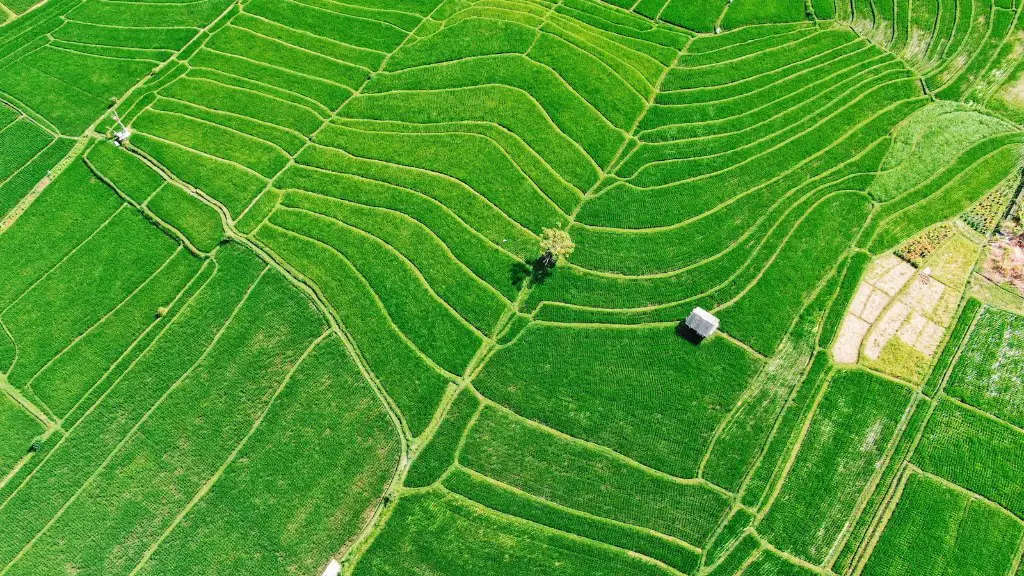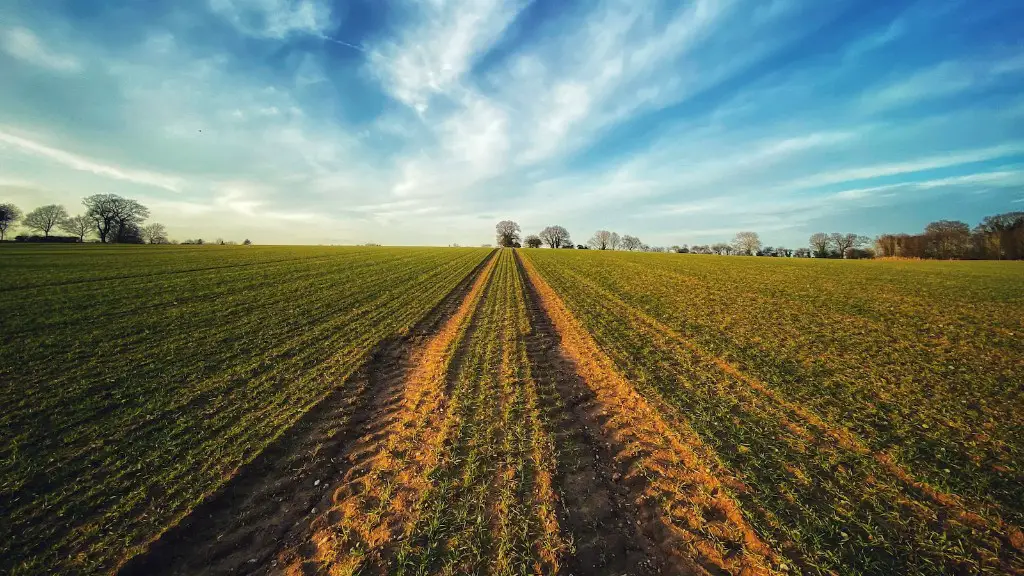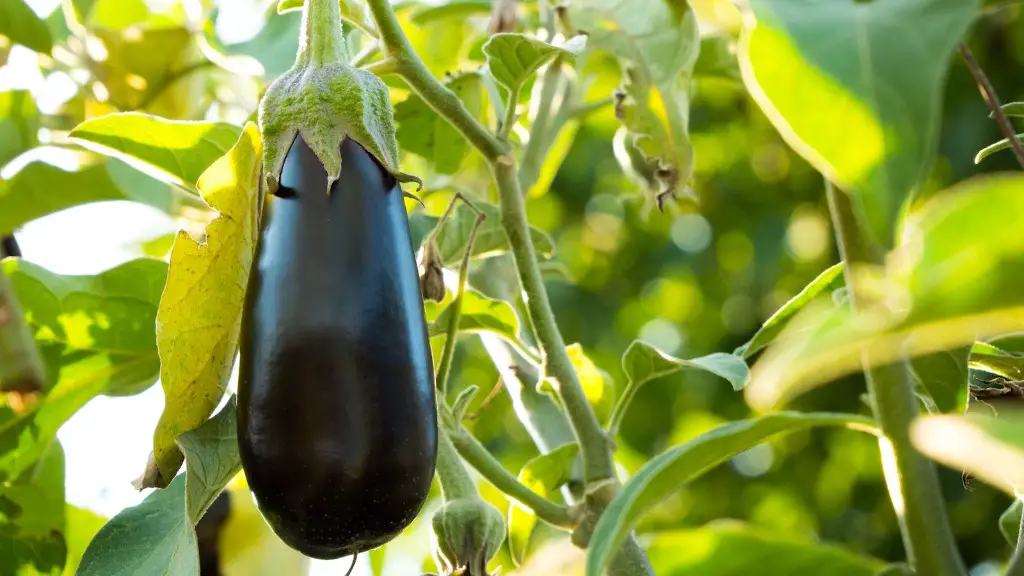Biodiversity is important for agriculture for a number of reasons. First, biodiversity helps to ensure that there are a wide variety of crops available to farmers, which helps to protect against crop failures. Second, biodiversity can help to improve the overall health of crops by providing natural pest and disease control. Third, biodiversity can help to provide a more stable food supply, as different crops can be affected differently by changes in the environment. Finally, biodiversity can help to support local economies by providing a source of income for farmers and other related businesses.
Biodiversity is important for agriculture because it helps to ensure that crops are resistant to diseases and pests, and it also helps to improve the overall quality of the soil. Additionally, biodiversity can provide a source of food for animals and other creatures that help to pollinate crops and keep ecosystems in balance.
Why is biodiversity so important in agriculture?
Biodiversity in domesticated crops and livestock is important because it helps ensure that there is a large gene pool for traits like disease resistance. Growing only a few varieties of plants makes our food supply vulnerable to threats like climate change and disease. Having a large gene pool is important for the long-term health of our food supply.
Biodiversity is essential for the processes that support all life on Earth, including humans. Without a wide range of animals, plants and microorganisms, we cannot have the healthy ecosystems that we rely on to provide us with the air we breathe and the food we eat. And people also value nature of itself.
What is the relationship between agriculture and biodiversity
Agriculture is the leading cause of biodiversity loss globally. The conversion of natural habitats to intensely managed systems is the main driver of this loss, as it results in the loss of habitat and the release of pollutants, including greenhouse gases. The growing population and changing consumption patterns are exacerbating the problem, as the demand for food and other agricultural products increases.
Biodiversity can have a number of benefits for agriculture, including enhancing soil health, establishing habitat, controlling pests, cycling nutrients, and reducing erosion and runoff. By incorporating biodiversity into agriculture, we can help to improve the overall health of our ecosystems.
What are 5 reasons why biodiversity is important?
There are many reasons why biodiversity is important, not just for the environment but for human beings as well. Biodiverse ecosystems provide us with many services that we rely on, such as clean air and water, food, and medicine. They also help to regulate the climate and are an essential part of the solution to climate change. Biodiversity is also good for the economy, providing jobs and essential products and services. And finally, biodiversity is an integral part of culture and identity, providing us with a sense of who we are and where we come from.
Biodiversity provides a wide range of benefits to humans, both directly and indirectly.
Direct benefits from biodiversity include things like food, fuel, shelter, and medicine. We rely on plants and animals for these things, and so the more diverse our ecosystems are, the more likely we are to find the resources we need.
Indirect benefits from biodiversity are things like pollination, seed dispersal, climate regulation, water purification, and nutrient cycling. These are all services that ecosystems provide that are crucial to our survival.
Biodiversity is important to us in a variety of ways, and so it is important to protect and conserve it.
What are the 4 main benefits of biodiversity?
The Millennium Ecosystem Assessment (2005) classified human dependence on biodiversity into four main services: provisioning, regulating, cultural, and supporting. Each of these services is essential to human health.
Provisioning services refer to the benefits we receive from the natural world, such as food, water, timber, and fiber. Regulating services refer to the benefits provided by ecosystem processes, such as climate regulation, pollination, and pest control. Cultural services refer to the non-material benefits we receive from nature, such as recreation, aesthetic enjoyment, and spiritual fulfillment. Supporting services refer to the benefits provided by ecosystem functions, such as soil formation and nutrient cycling.
It is essential that we conserve biodiversity in order to maintain these essential services.
Agricultural biodiversity is important for many reasons. It helps maintain the health of ecosystems, provides food and income for people, and helpsadapt to a changing climate. Agricultural biodiversity also helps ensure food security in a world where the population is growing and the climate is changing.
What are 3 benefits of biodiversity
Biodiversity conservation efforts are essential in maintaining functioning ecosystems, a steady food supply, and the multiple other benefits including aesthetics, recreation, and spiritual purposes to Native American tribal nations.5 These benefits are vital to the health and wellbeing of Native American communities and require ongoing protection.
Biodiversity is necessary to human survival for many reasons. First, ecosystem diversity is crucial to ecosystem integrity, which in turn enables our life support, giving us a livable climate, breathable air, and drinkable water. Second, biodiversity provides us with a vast array of food and other resources. Third, biodiversity is key to medical research and the development of new medicines. Finally, biodiversity helps us adapt to changing environmental conditions.
What are 6 reasons why biodiversity is important?
Biodiversity is important for a variety of reasons. Preserving biodiversity helps to ensure the survival of the species, maintain ecosystem productivity, provide natural beauty and recreation, and more.
The survival of the species is one of the most important reasons for preserving biodiversity. Without biodiversity, species would go extinct and the world would be a very different place.
Ecosystem productivity is another important reason for preserving biodiversity. Biodiversity helps to maintain the balance of nature and the resources that ecosystems provide.
Natural beauty and recreation are also important reasons for preserving biodiversity. Biodiversity provides a wide variety of landscapes and habitats that are perfect for outdoor activities.
Finally, preserving biodiversity also has economic benefits. Biodiversity helps to provide a number of resources that are essential for human life.
Biodiversity underpins economic activity in a number of ways. Firstly, it is essential for food production, as a variety of food plants, pollination, pest control, nutrient provision, genetic diversity, and disease prevention and control all rely on it. Secondly, both medicinal plants and manufactured pharmaceuticals rely on biodiversity. Therefore, it is clear that biodiversity is essential for both food production and the development of medicines, and thus has a significant impact on the economy.
What are examples of benefits of biodiversity
Biodiversity is essential to our survival and wellbeing. It provides us with clean drinking water, oxygen to breathe, food, medicine, and helps our planet withstand natural disasters.
We must do everything we can to protect biodiversity, because without it we would not be able to survive.
The loss of biodiversity is a major environmental concern because it can lead to the extinction of plant and animal species, as well as reduce the resilience of ecosystems to shocks such as floods and fires. The decline in biodiversity also has implications for human health, as it can reduce the availability of food and water, and also increase the spread of diseases.
There are many things that can be done to halt the loss of biodiversity, such as conserving and restoring natural habitats, reducing pollution and climate change, and promote sustainable land use. It is important that we act now to protect biodiversity, before it is too late.
What is the value of biodiversity?
Biodiversity is extremely important for the health of our environment. Ecosystems would not be able to function properly without the many different species that support them. Soil turnover, water purification, and pest control are just a few examples of the natural processes that would not be possible without biodiversity.
Plant biodiversity is essential for maintaining a healthy ecosystem. When plants are removed from an area, the entire ecosystem suffers. Plants provide food and shelter for animals, moderate the climate, protect watersheds, and help prevent erosion. The increasing human population is the biggest threat to plant biodiversity. As the population grows, more land is developed, leading to deforestation and habitat loss. Pollution and climate change also contribute to species extinction. It’s crucial that we take steps to protect plant biodiversity, or we will see a decline in the health of our planet.
Final Words
There are many reasons why biodiversity is important for agriculture. One reason is that it helps to ensure a steady supply of food. Another reason is that biodiversity can help make farms more resilient to changes in the environment, such as climate change. Additionally, biodiversity can provide natural pest control, and also help with soil health and fertility.
Biodiversity is crucial for maintaining a healthy and productive agricultural ecosystem. Without biodiversity, agricultural ecosystems would be much more susceptible to pests and diseases, which would decrease crop yields and food security. Biodiversity also provides key ecosystem services such as pollination and soil fertility that are essential for sustainable and productive agriculture.





